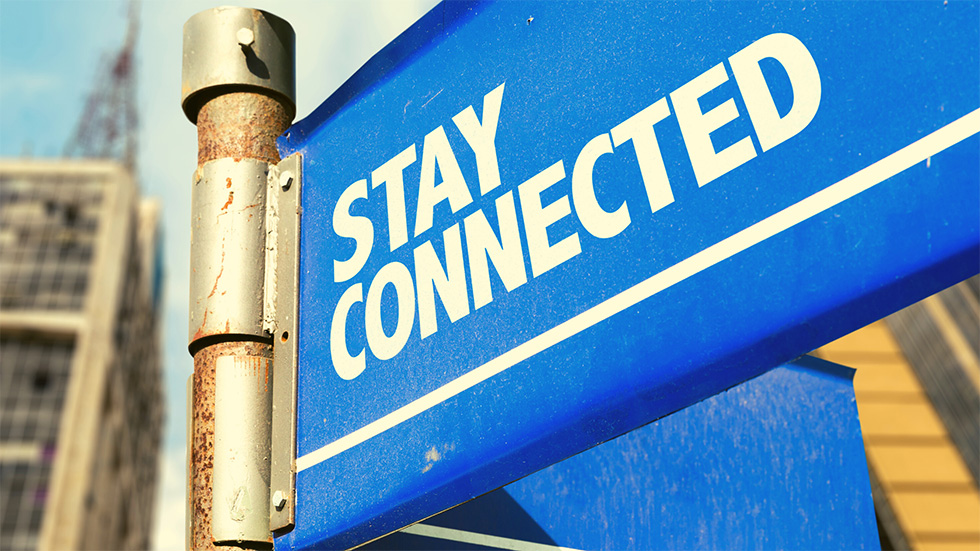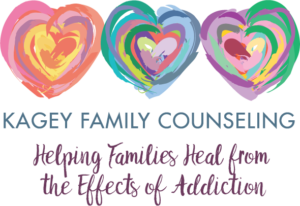It’s Vital To Stay Connected With Others If You’re Trying to Recover From Substance Abuse (or Related) Issues.
Most of you know that it’s really important to find ways to stay connected as our lifestyles continue to be impacted by the changes brought about by COVID 19. This is especially important for people who are trying to recover from, or are in recovery from, substance abuse issues and those related to them. Addiction is a disease that thrives in isolation – the more disconnected you are from others, the more room the disease has to tell you lies and distort your thinking.
Johann Hari, a well-known author who writes about addiction, goes as far as to say that, “The opposite of addiction is not sobriety, it’s human connection.” While sobriety is a crucial part of recovering from addiction, Hari’s point is well-made. The ability to build and maintain social connections is vital when you’re trying to recover from an addiction, and if you aren’t able to establish connections with others, it can seriously impact your efforts to stay sober.
The social aspect of 12-Step meetings – both the meetings themselves, working with others on the Steps, and getting together outside the meetings – is a fundamental reason why 12-Step recovery works for so many people. The 12-Steps were actually written with the word “We” in each of the steps (instead of “I”) because the founders learned that one person in recovery only succeeds when they work with another. While not everyone chooses to get sober through 12-Step programs, prioritizing social connectedness in your recovery is beneficial to every addict or co-addict trying to get well.
However, the social restrictions brought on by the pandemic have probably impacted your ability to connect with others in ways that you’re used to. If that’s true for you, we want you to know that you’re not alone. It’s understandable, and even expected, that things may be feeling very difficult for you right now. Whether you are new to recovery or have been in recovery for decades, we want to acknowledge that this has been a very challenging time for those dealing with addictions. We want to encourage you to keep doing whatever you can to stay connected to others, and we’ve come up with creative suggestions for you to try out.
Some Ways to Feel More Connected During Zoom Meetings
Whatever kind of sober community you’re in – there are likely versions of meetings via Zoom that you can attend. While it may not “feel the same as meeting in person”, if you stick with it, it will start to feel more normal. Some things you can try to make Zoom meetings feel more connected are:
- Viewing in “Speaker View” when people share so you’re looking only at them and not a screen full of people. This may help you to concentrate more easily on what the person is sharing and lets you see their facial expressions more clearly – which is an important part of communication we miss online.
- Sending a quick private “Chat” message to someone to say “Hello” or to tell them you appreciated their share or lead. We’re not suggesting cross-talk, but since you’re not in-person, brief, private Chat messages can feel like that little head-nod or hello you would say to someone across the room if you were at the meeting in-person with one another.
- Volunteering to lead or chair a meeting or being a Zoom host or co-host can help you to feel more involved and connected to others.
- If it’s in compliance with your meetings’ guidelines, listing your phone number in the Chat area so you can make and receive calls with others between meetings.
Creative Ideas for Connecting with Others ViaTechnology
- While Facebook is often a controversial platform, it can serve as a valuable resource for connecting with others recovering from substance abuse issues and finding information about all kinds of recovery groups.
- If you’re already on the path of recovery, you could try creating your own time to meet each week with a few of your close friends on Zoom or FaceTime to check-in with one another.
- Playing games together on Zoom. If you google “Games You Can Play on Zoom” a whole list of ideas comes up that you can try. Playing and having fun with others is a big piece most people are missing right now – so making a point of setting up a time to play with others can really help you to feel more connected to friends and family.
- Try a virtual scavenger hunt! You could even incorporate this into your work schedule if you have a work team that’s willing to play along. The way it works is you list items that people can find in their homes and whoever finds them all first wins! Listing things that require some imagination make it more fun – for example – find something in your house with wheels on it.
- Make plans with someone and do something “together” while on the phone, FaceTime or Zoom that you’d normally do in-person. For example – take a walk together, watch the same show or movie, eat lunch or have a coffee together, watch a YouTube instructional video on how to paint a paining and do the painting at the same time, do any other kind of hobby while online or on the phone together (sewing, crafting, drawing – anything you enjoy). This gives you a way of “being” together without having to talk the whole time – which is a much needed part of connection you may be missing.
- To create some connection while you’re working from home on the computer, ask a coworker or friend who does similar work to Zoom with you while you’re working. You can just have them in the corner of your screen while you do your work. If you’re on the same work team, you can even ask one another questions and coordinate together as if you were working next to each other in the office.
- Schedule time with someone you trust just to check-in. It doesn’t need to be a long call or a deep talk, but it will help you to feel more connected knowing you have someone to do a quick, “How are you doing?” call with a friend or family member who you may not be seeing much.
Of course, if it’s safe for you to meet people while socially distancing or wearing a mask, that is ideal! Being outside is one of the safer recommendations – so you could try meeting somewhere outside to talk, have a coffee, go for a walk, or eat a meal.
The Upside of Zoom/Online Recovery During COVID 19
There are some silver linings when it comes to being in recovery, trying to get sober, or dealing with the addiction of a loved one during this time. Because most recovery meetings have moved to Zoom (or another video-conferencing format), you literally have unlimited choices when it comes to which meetings you can attend.
Consequently, if you want to go to meetings in another city or state, you can! You also have meetings across multiple time zones to choose from in order to accommodate your schedule if you work swing shifts or unusual hours.
These options brought on by the pandemic may really appeal to you if you went to rehab in a different place from where you live and you want to connect with people in meetings from that area again. It could also be an advantage if you started recovery in a different place to where you currently live, and you miss the meetings you used to go to. It could also be a benefit if you’ve heard about really good meetings in a certain city or state, but you’ve never been able to visit them in person – now you can “go there” from your living room. And for those who feel anxious about going to meetings or are new to recovery, you can always leave your video off when you first join a meeting until you’re more comfortable and ready to “be seen.”
We’re Here For You
It does take a little more effort and imagination to stay connected during social distancing restrictions and shut downs, and if you tend to isolate due to your addiction, it can feel even harder. We recognize the significance of this struggle. However, we want to encourage you to keep trying, to keep on keeping on, and to not give up! We’re all in this together, and you are not alone. Please be gentle with yourself and just do the best you can. You’re worth connecting with and you matter…even when your disease might tell you differently. Reach out to us if you need support. We care about you and we’re here for you.
You can reach out to us by calling 832-928-0211or by completing our contact form here, or by messaging us on social media. We look forward to connecting with you!


